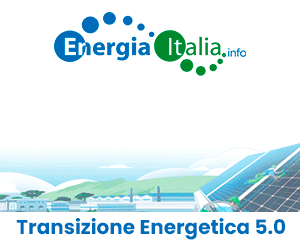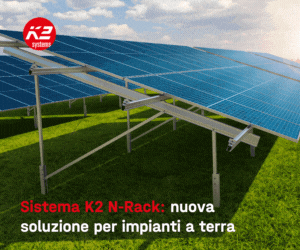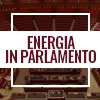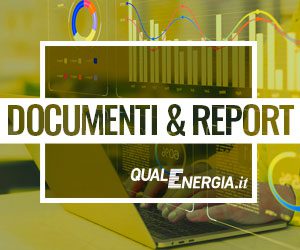La battaglia europea sulle sabbie bituminose continua, in un braccio di ferro che sta paralizzando la legge che potrebbe penalizzare questo petrolio dalla pessima impronta ambientale. Ultima notizia della storia è la lettera pubblicata ieri e firmata da 21 premi Nobel (vedi in fondo). Indirizzata ai leader dell’Unione Europea, la missiva chiede di sbloccare la legge che etichetterebbe il petrolio ottenuto dalle tar sands come più sporco degli altri greggi, imponendo un onere compensativo alle compagnie petrolifere che lo vendono.
I 21 Nobel (tra gli altri, Desmond Tutu, José Ramos-Horta, Jody Williams e John Hume) scrivono che la legge in questione è necessaria perché “l’estrazione e la produzione di carburanti da fonti non convenzionali, quali sabbie bituminose, scisti e liquefazione del carbone causano maggiori emissioni” e perché “l’estrazione da shale e tar sands sta già avendo un impatto devastante sul cambiamento climatico”.
Vedremo se l’intervento servirà a far finalmente recepire le modifiche alla direttiva sulla qualità dei carburanti proposte dalla Commissione nell’ottobre 2011. Bruxelles, infatti, aveva quantificato l’impatto in termini di CO2 del petrolio da sabbie bituminose come nettamente superiore a quello del greggio convenzionale; valutazione che risulterebbe penalizzante nei confronti del petrolio da tar sands fino ad un possibile totale bando della fonte energetica dall’Unione Europea.
Contro la valutazione che la Commissione vorrebbe introdurre nella direttiva sulla qualità dei carburanti si è di conseguenza scatenata una massiccia campagna di diplomazia e lobby, guidata dal Canada – l’Arabia Saudita delle sabbie bituminose – e dalle compagnie petrolifere, Shell in testa.
Il paese nordamericano, appoggiata in questo anche dagli Stati Uniti, ha sollevato la questione come violazione del principio del libero scambio, minacciando un ricorso al WTO, e ha inoltre contestato la trasparenza del metodo di calcolo delle emissioni da parte della Commissione. Questa lobby sta cercando di raggiungere un accordo per superare l’ostacolo.
Nel frattempo arrivano le rivelazioni ufficiose dell’impact assesment della normativa proposta che la Commissione sta effettuando. Rivelazioni che dicono come in realtà la modifica della direttiva avrebbe effetti del tutto trascurabili per i petrolieri. Secondo quanto raccontato ad EurActiv, dopo l’esame de diversi metodi di valutazione delle emissioni utilizzati dall’industria, dal mondo scientifico e dall’UE, “si è scoperto che l’impatto sul prezzo alla pompa sarebbe sostanzialmente equivalente”: meno di un centesimo di euro al litro. Quindi minima è la differenza in quanto a costi.
La proposta Ue sarebbe più che altro simbolica, ma il settore del petrolio non convenzionale la teme per gli effetti che potrebbe avere sull’export e sull’accesso ad altri mercati mondiali.
Letter to EU Commissioners and Environment Ministers re EU climate legislation and unconventional fossil fuels
The world can no longer ignore, except at our own peril, that climate change is one of the greatest threats facing life on this planet today. The impacts of climate change and extreme resource extraction are exacerbating conflicts and environmental destruction around the world. The extraction of unconventional fuels—such as oil sands and oil shale—is having a particularly devastating impact on climate change.
For this reason, we are writing to urge you to support the immediate implementation of the European Union’s (EU) Fuel Quality Directive in order to fulfill its 6% reduction target in greenhouse gas emissions from fuels used for transportation by 2020. We have no doubt that the Directive must be applied fairly to unconventional fuels to ensure their climate impacts are fully taken into account. It follows that the fuel-producing companies should report their climate emissions and be held responsible for any emissions increase.
We welcome the EU’s scientific analysis—as it is now proposed for the implementation of the EU Directive—that the extraction and production of fuels from unconventional sources fuels including oil sands, coal-to-liquid, and oil shale leads to higher emissions and that this should be reflected in the regulations.
The International Energy Agency (IEA) is warning that unconventional fuel sources are especially damaging to the environment and climate, and is concerned that these fuel sources are now increasingly competing on a par with conventional fuel sources. In order to avoid catastrophic climate change, the IEA calculates that two thirds of known fossil fuel reserves must be left in the ground.
Now is the time to transition swiftly away from fossil fuels, with a special focus on those that pollute the most. We must all move toward a future built on safe, clean and renewable energy. Fully implementing the EU’s Fuel Quality Directive will send a clear signal that the European Union is committed to action that supports the rights of future generations to a healthy planet.
It is not too late to avert our actions that only amount to palliative care for a dying planet. The time for positive action is now. The European Union can demonstrate clear and unambiguous leadership by upholding its climate principles. We look forward to working together as we move forward to confront this frightening challenge to our global survival.
Mairead Maguire, Nobel Peace Prize, 1976, Ireland
Roger Guillemin, Nobel Prize in Physiology or Medicine, 1977, France
Adolfo Pérez Esquivel, Nobel Peace Prize 1980, Argentina
Archbishop Desmond Tutu, Nobel Peace Prize 1984, South Africa
Rigoberta Menchú Tum, Nobel Peace Prize, 1992, Guatemala
Richard Roberts, Nobel Prize in Physiology or Medicine, 1993, United Kingdom
Paul Crutzen, Nobel Prize in Chemistry, 1995, Netherlands
Harold Kroto, Nobel Prize in Chemistry, 1996, United Kingdom
José Ramos-Horta, Nobel Peace Prize, 1996, East Timor
John Walker, Nobel Prize in Chemistry, 1997, UK
Jody Williams, Nobel Peace Prize, 1997, USA
John Hume, Nobel Peace Prize, 1998, Ireland
Paul Greengard, Nobel Prize in Physiology or Medicine, 2000, USA
Shirin Ebadi, Nobel Peace Prize, 2003, Iran
Gerhard Ertl, Nobel Prize in Chemistry, 2007, Germany
Mark Jaccard, member of the Intergovernmental Panel on Climate Change, Nobel Peace Prize, 2007, Canada
John Stone, member of the Intergovernmental Panel on Climate Change, Nobel Peace Prize, 2007, Canada
Martin Chalfie, Nobel Prize in Chemistry, 2008, USA
Thomas Steitz, Nobel Prize in Chemistry, 2009, USA
Leymah Gbowee, Nobel Peace Prize, 2011, Liberia
Tawakkol Karman, Nobel Peace Prize, 2011, Yemen
– See more at: http://nobelwomensinitiative.org/2013/10/nobel-peace-and-science-laureates-calling-for-eu-action-on-tar-sands/?ref=204#sthash.RkndMkYV.dpuf
Letter to EU Commissioners and Environment Ministers re EU climate legislation and unconventional fossil fuels
The world can no longer ignore, except at our own peril, that climate change is one of the greatest threats facing life on this planet today. The impacts of climate change and extreme resource extraction are exacerbating conflicts and environmental destruction around the world. The extraction of unconventional fuels—such as oil sands and oil shale—is having a particularly devastating impact on climate change.
For this reason, we are writing to urge you to support the immediate implementation of the European Union’s (EU) Fuel Quality Directive in order to fulfill its 6% reduction target in greenhouse gas emissions from fuels used for transportation by 2020. We have no doubt that the Directive must be applied fairly to unconventional fuels to ensure their climate impacts are fully taken into account. It follows that the fuel-producing companies should report their climate emissions and be held responsible for any emissions increase.
We welcome the EU’s scientific analysis—as it is now proposed for the implementation of the EU Directive—that the extraction and production of fuels from unconventional sources fuels including oil sands, coal-to-liquid, and oil shale leads to higher emissions and that this should be reflected in the regulations.
The International Energy Agency (IEA) is warning that unconventional fuel sources are especially damaging to the environment and climate, and is concerned that these fuel sources are now increasingly competing on a par with conventional fuel sources. In order to avoid catastrophic climate change, the IEA calculates that two thirds of known fossil fuel reserves must be left in the ground.
Now is the time to transition swiftly away from fossil fuels, with a special focus on those that pollute the most. We must all move toward a future built on safe, clean and renewable energy. Fully implementing the EU’s Fuel Quality Directive will send a clear signal that the European Union is committed to action that supports the rights of future generations to a healthy planet.
It is not too late to avert our actions that only amount to palliative care for a dying planet. The time for positive action is now. The European Union can demonstrate clear and unambiguous leadership by upholding its climate principles. We look forward to working together as we move forward to confront this frightening challenge to our global survival.
- Mairead Maguire, Nobel Peace Prize, 1976, Ireland
- Roger Guillemin, Nobel Prize in Physiology or Medicine, 1977, France
- Adolfo Pérez Esquivel, Nobel Peace Prize 1980, Argentina
- Archbishop Desmond Tutu, Nobel Peace Prize 1984, South Africa
- Rigoberta Menchú Tum, Nobel Peace Prize, 1992, Guatemala
- Richard Roberts, Nobel Prize in Physiology or Medicine, 1993, United Kingdom
- Paul Crutzen, Nobel Prize in Chemistry, 1995, Netherlands
- Harold Kroto, Nobel Prize in Chemistry, 1996, United Kingdom
- José Ramos-Horta, Nobel Peace Prize, 1996, East Timor
- John Walker, Nobel Prize in Chemistry, 1997, UK
- Jody Williams, Nobel Peace Prize, 1997, USA
- John Hume, Nobel Peace Prize, 1998, Ireland
- Paul Greengard, Nobel Prize in Physiology or Medicine, 2000, USA
- Shirin Ebadi, Nobel Peace Prize, 2003, Iran
- Gerhard Ertl, Nobel Prize in Chemistry, 2007, Germany
- Mark Jaccard, member of the Intergovernmental Panel on Climate Change, Nobel Peace Prize, 2007, Canada
- John Stone, member of the Intergovernmental Panel on Climate Change, Nobel Peace Prize, 2007, Canada
- Martin Chalfie, Nobel Prize in Chemistry, 2008, USA
- Thomas Steitz, Nobel Prize in Chemistry, 2009, USA
- Leymah Gbowee, Nobel Peace Prize, 2011, Liberia
- Tawakkol Karman, Nobel Peace Prize, 2011, Yemen



.jpg)





















.gif)








